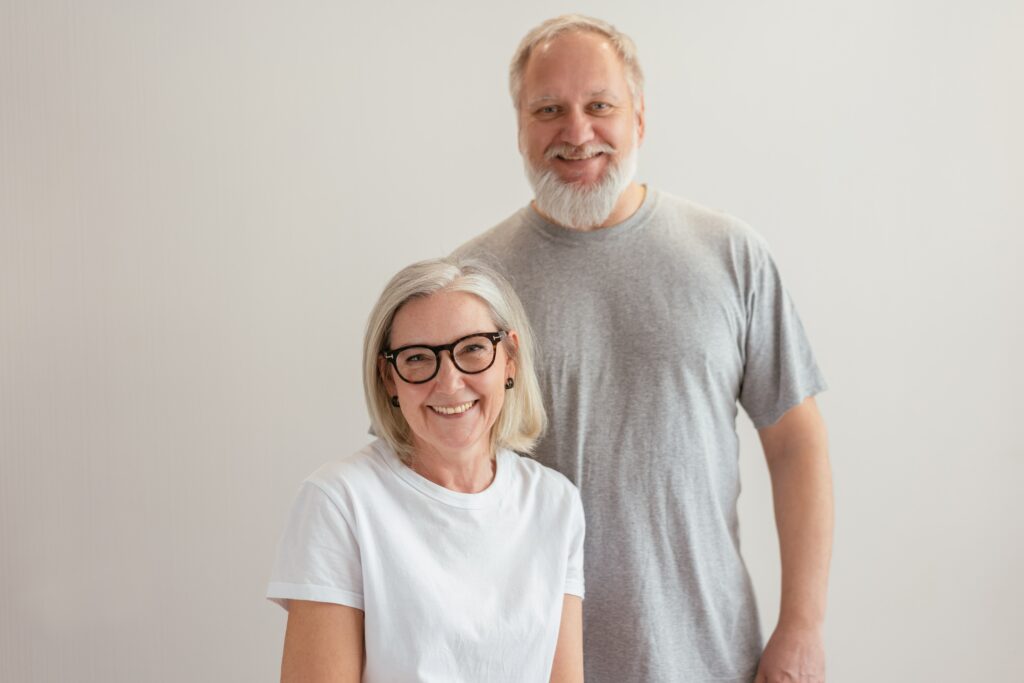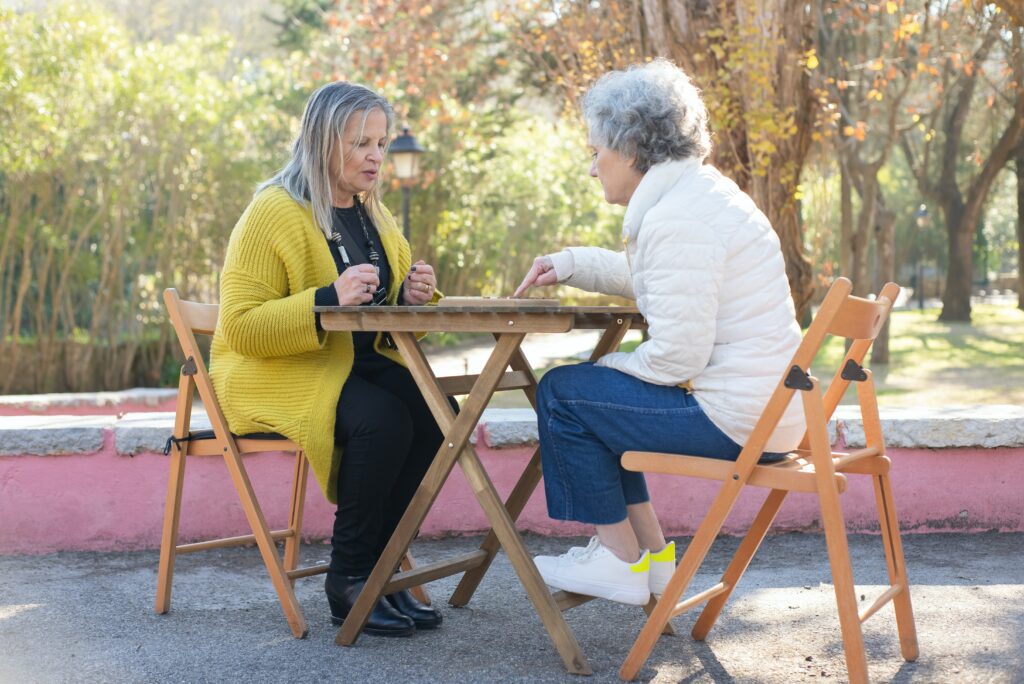Physical Health: The Importance of Meeting the Needs of Older Adults
As individuals age, the importance of their physical demands increases. Older adults must prioritize their physical health by adhering to dietary recommendations, engaging in regular exercise, and maintaining their overall wellness with the aid of caregivers.
Inattention to these bodily demands can lead to a number of health issues and older age problems, including obesity, chronic discomfort, and an increased chance of developing chronic illnesses. Older adults must take an active role in preserving their physical health if they wish to lead a happy and satisfying life.
Continue reading to better grasp the physical demands of the elderly.
What are Physical Needs?
Physical needs relate to the necessities for human existence and well-being that are of a physical nature. These requirements include food, water, shelter, clothes, rest, and medical treatment.
Food and water are required to provide the body with the nutrition and energy it needs to function correctly. Shelter offers shelter from the elements and a secure place to sleep and rest.
Clothing is essential for shielding the body from the environment and regulating body temperature. Sleep is necessary for rest and recuperation, and medical care aids in the prevention and treatment of sickness and injury.
Physical needs are seen as essential since they are required for basic existence and serve as the basis for all other wants, including social, emotional, and intellectual needs. Without satisfying these fundamental bodily demands, it is impossible to concentrate on other elements of life or to attain higher-level objectives.
How Do Physical Needs Interconnect to Older Adults?
The physical needs of older adults are interconnected in various ways, and meeting these needs is crucial for optimal physical health and overall wellbeing.
Below are some of the ways in which physical needs interconnect for older adults:
- Proper Nutrition and Hydration: Eating a balanced diet that includes fruits, vegetables, whole grains, and lean proteins is important for maintaining a healthy body weight, strong bones and muscles, and optimal physical performance.
- Adequate hydration is also essential for optimal physical health, as water is needed to regulate body temperature, transport nutrients, and remove waste from the body. Therefore, older adults should make sure to consume a sufficient amount of water and other fluids throughout the day to maintain proper hydration.
- Regular Exercise and Quality Sleep: Regular exercise is essential for maintaining optimal physical health, and quality sleep is important for proper recovery and rejuvenation. These physical needs are interconnected, as regular exercise can improve the quality of sleep, and quality sleep can improve the ability to engage in physical activity.
- Stress Management and Regular Check-ups: Stress management is essential for overall physical and mental health, and regular check-ups with healthcare providers can help identify and prevent health problems.
- These physical needs are interconnected, as stress can negatively impact physical health and lead to chronic illnesses.
- Overall Physical Health and Disease Prevention: Meeting physical needs is essential for overall physical health, and this can reduce the risk of chronic illnesses such as heart disease, type 2 diabetes, and cancer. These physical needs are interconnected, as proper nutrition, hydration, exercise, and sleep all play a role in disease prevention.
Physical Needs of Older Adults
As a person matures into adulthood, their physical demands become increasingly important to both their well-being and their level of happiness.
From the most fundamental, like eating and drinking, to the most complicated, like managing stress and getting adequate sleep, there is a wide spectrum of requirements that must be met for a healthy body.
The degree to which an individual is aware of and pays attention to these demands is directly proportional to that individual’s potential for fulfillment. In the following paragraphs, we’ll take a more in-depth look at the many different kinds of physical exercise that people need to participate in to have happy and healthy lives.
Nutrition
Nutrition is one of the most essential requirements that the human body must meet. Both macronutrients and micronutrients, such as vitamins and minerals, are required for human existence. Some examples of macronutrients are carbs, proteins, and lipids.
Consuming a diet that is high in whole foods that are rich in nutrients, such as fruits, vegetables, lean proteins, and whole grains, is necessary for maintaining overall health. It is essential to cut back on the intake of processed meals and foods with a high sugar content in order to avoid gaining weight as well as other health issues.
Eating an excessive amount of food is the immediate cause of obesity and the related health hazards, whereas eating an inadequate amount of food is the primary cause of malnutrition and the associated difficulties. It is essential to pay attention to the signals your body sends you regarding hunger and fullness and to behave in accordance with those signals.
In the end, the kind of physical activity that a person participates in should be determined by their tastes, their schedule, and their current degree of fitness. Exercising shouldn’t be seen as a chore or a burden in order to maintain a healthy lifestyle. People could seek for things they like and find ways to include them into their daily schedules if they want to be more consistent.
Sleep
Older adults absolutely need to ensure that they are getting adequate quality sleep in order to perform at their very best. Sleep is necessary because it enables the body to restore its energy stores, repair damaged tissues, regulate hormone production, and enhance mental performance.
Sleep deprivation is also related to an impaired immune system. People can attempt things like keeping to a regular sleep schedule, cutting back on the amount of coffee and alcohol they consume, and making their bedrooms more soothing places to spend time in order to increase the quality of sleep they get.
Managing Stress in Your Life
There will always be stress in one’s life, and if it isn’t properly handled, it may take a major toll on one’s physical health. If there isn’t adequate management of stress, there will always be stress in one’s life.
It is possible for stress to have a severe impact on one’s health, particularly when it is prolonged over an extended period of time. These bad impacts can include the development of high blood pressure and heart disease. As a consequence of this, it is very necessary for people to acquire skills for effectively coping with stress.
A number of activities, such as engaging in a hobby, spending time with friends and family, and getting some exercises are great methods to de-stress. Meditation techniques such as yoga and exercises that focus on deep breathing are two examples of activities that can help reduce stress and anxiety.
Hydration
Consuming an adequate amount of water is crucial to the health of both children and adults. In order to keep their organs functioning properly, humans, who are made up of around 60 percent water, need to consume an adequate amount of water.
Every day, the typical individual should drink eight to ten glasses of water. Consuming an adequate amount of water may improve a number of different aspects of your body, including digestion and internal temperature.
When it comes to maintaining proper hydration levels, it is essential to keep in mind that not all drinks are created on an equal scale.
Because it does not include any additional sugars or calories, water is the finest beverage option for staying hydrated. Since sugary drinks like soda, fruit juice, and energy drinks can contribute to weight gain and the health problems that come along with it, it is important to limit one’s consumption of these beverages as much as possible.
Effects and Consequences to Older Adults if their Physical Needs are not able to Achieve
If you are unable to meet the physical requirements of maturity and keep them up, there are a number of very serious problems that can result.
What are some of the potential consequences of not taking care of your body?
- Obesity: Both a lack of physical exercise and adequate diet are key factors that contribute to obesity. Obesity is linked to a number of different diseases, including cardiovascular disease, type 2 diabetes, high blood pressure, and stroke.
- Mental Health Problems: Many times, issues with physical health that are already present can make mental health problems much worse. Depression, anxiety, and other mental health issues are among those that can be exacerbated by factors such as a lack of physical exercise, poor diet, and insufficient sleep.
- Chronic Diseases: If a person disregards their physical health, they put themselves at risk for a variety of illnesses, including cancer, diabetes, and heart disease. In the absence of treatment, many of these disorders have the potential to shorten a person’s life or possibly prove deadly.
- Weak Immune System: If you lead an unhealthy lifestyle, such as eating badly and not getting enough exercise, your immune system may suffer as a result. When a person’s immune system is compromised, they are more likely to get a variety of illnesses and infections.
- Poor Sleep: Insufficient quality sleep has been related to a number of negative outcomes, including an increased risk of accidents, feeling tired all the time, and lower productivity. There is a correlation between not getting enough quality sleep and having detrimental consequences on one’s mental and physical health.
- Decreased Energy: If you are unable to maintain your physical health, it is probable that you may experience a loss of energy. This might make it more difficult for a person to carry out normal duties, engage with other people, and find joy in everyday activities.
- Reduced Life Expectancy: There is a correlation between poor physical health and a shorter lifespan. Those who do not make an effort to maintain their health and level of physical fitness run the risk of having their lifetime cut short due to the issues that might arise from chronic diseases.
Understanding Normal Aches and Pains
There are several aches and pains related to physical needs that are commonly encountered by seniors. These can be caused by a variety of factors, including lifestyle habits, injuries, and underlying health conditions. Some of the most common aches and pains experienced by older adults include:
- Back Pain: Back pain is one of the most common types of pain experienced by older adults. It can be caused by a variety of factors, including poor posture, overuse, injury, or degenerative conditions such as arthritis.
- Joint Pain: Joint pain is another common type of pain experienced by older adults. It can be caused by overuse, injury, or common conditions such as osteoarthritis or rheumatoid arthritis.
- Headaches: Headaches can be caused by a variety of factors, including stress, tension, dehydration, eye strain, or underlying health conditions such as migraines.
- Muscle Pain: Muscle pain can be caused by overuse, injury, or underlying health conditions such as fibromyalgia.
- Neck Pain: Neck pain is often caused by poor posture or overuse, such as spending too much time looking down at a phone or computer screen.
- Foot Pain: Foot pain is often caused by wearing improper footwear, overuse, or underlying health conditions such as plantar fasciitis.
It is important for older adults to seek medical attention if they are experiencing chronic or severe aches and pains, as they could be indicative of underlying health problems that require treatment. In addition, maintaining a healthy lifestyle, including regular exercise and maintaining a healthy weight, can help prevent or alleviate many of these common aches and pains.
Strategies and Approaches to Attain and Maintain Older Adult Physical Health
It is important for individuals to establish and maintain their physical objectives with attention and consistency. Individuals can choose from a number of different approaches to satisfy their physiological requirements and even emotional well-being, including the following:
- Balanced Diet: Older adults may assist themselves keep a healthy diet and weight by consuming a broad variety of complete meals, such as fruits, vegetables, whole grains, and lean proteins, on a regular basis.
- Limiting the consumption of processed foods and meals that are heavy in sugar can help people keep their weight in a healthy range and reduce their risk of developing chronic illnesses. In order to keep one’s health in the best possible condition, it is essential to pay attention to one’s physical cues such as hunger and fullness.
- Regular Exercise: Regular physical activity may be beneficial for many aspects of one’s health, including but not limited to: weight control, cardiovascular fitness, bone and muscle strength, and overall strength. Participating in joyful activities and finding a way to fit them into one’s daily routine might help maintain consistency easier for seniors.
- Quality Sleep: The performance of older adults is negatively impacted when they do not obtain adequate quality sleep. They have the potential to enhance their quality of sleep by adhering to a regular sleep schedule, reducing their consumption of coffee and alcohol, and making their bedrooms more soothing.
- Stress Management: They may learn to better manage their stress by engaging in hobbies, maintaining relationships with friends and family, and engaging in regular physical activity. Meditation, yoga, or practices that include deep breathing are all excellent ways to help you relax and let go of tension, and all three may be beneficially combined.
- Hydration: The best strategy for people to maintain optimum hydration is to consume sufficient amounts of water as well as other fluids throughout the day. It is crucial to limit the use of sugary drinks because doing so can lead to weight gain in addition to other health problems.
- Regular Check-ups: Regular visits to your primary care physician for checkups might be of assistance in the early identification and prevention of many health disorders. Older adults should go to the doctor frequently to discuss their health, including the results of regular tests for cancer, high blood pressure, and excessive cholesterol.
Wrap Up!
In conclusion, the physical requirements of older adults are critical to their overall health and well-being. Having a healthy diet, drinking plenty of water, and engaging in regular physical activity are all crucial elements in fulfilling these prerequisites.
Maintaining mobility and healthy weight and warding off chronic diseases are both facilitated by eating a well-rounded diet that provides enough amounts of all the important macro- and micronutrients. A healthy and fulfilling life for older adults requires meeting the physical demands of the body through proper nutrition, adequate hydration, and frequent physical activity.
Further Readings
Getting Enough Rest: The Importance of Sleep for Senior Health and Wellness
Embracing the Journey: What Happens to Your Body in Your 60s and 70s






